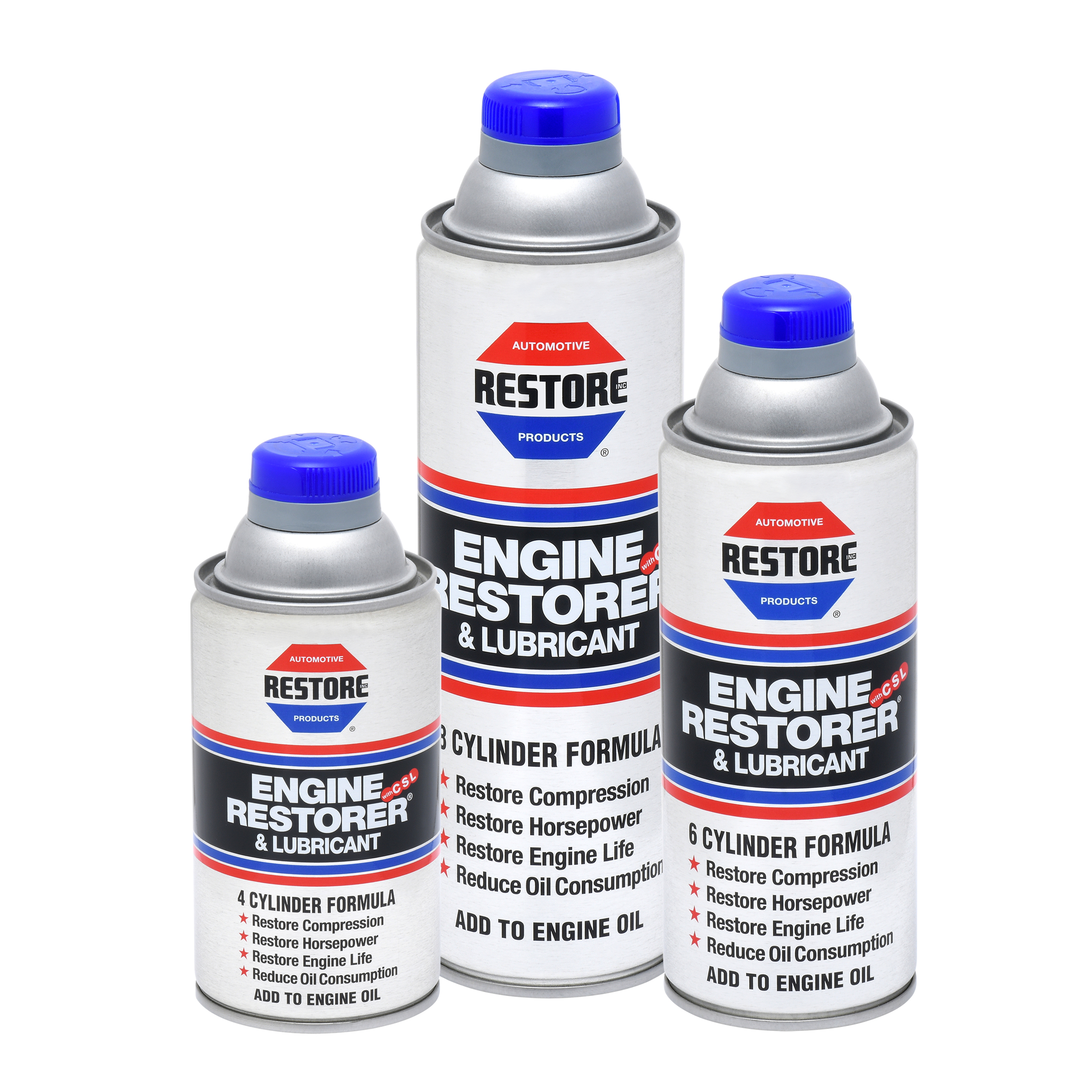
Mile after mile, friction gradually wears out every car's engine resulting in microscopic leaks between the piston rings and cylinder walls. In high-mileage engines these small leaks are the reason for loss of compression during the compression stroke and excessive blow-by during the combustion stroke.
By the time an engine reaches 100k miles most cylinders will have lost 10% to 25% of original compression. Each cylinder wears differently causing uneven compression levels across the cylinders with 20-60 PSI variations between cylinders in the same engine. Compression loss results in less horsepower generated by the engine, as well as increased oil consumption and sludge formation due to combustion blow-by.
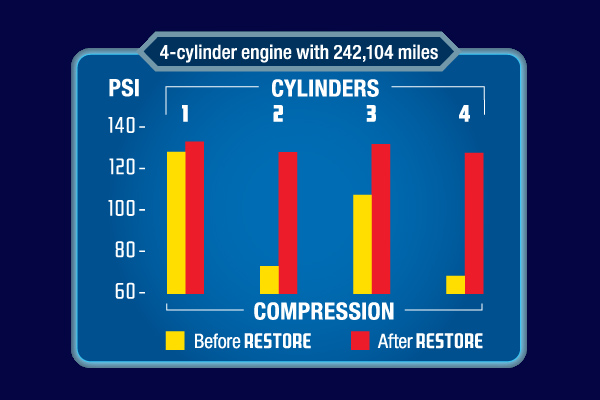
RESTORE increases and balances compression across all cylinders to near original levels.
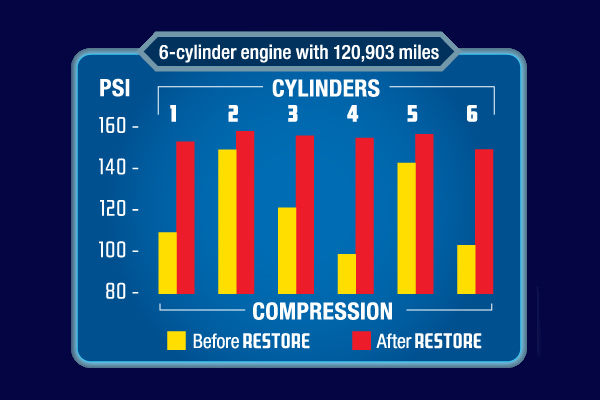
RESTORE increases and balances compression across all cylinders to near original levels.
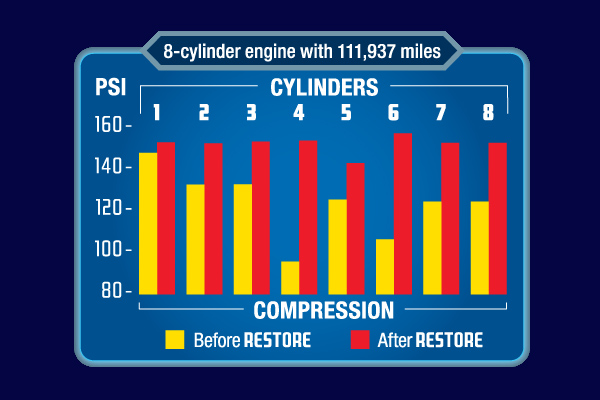
RESTORE increases and balances compression across all cylinders to near original levels.
RESTORE Engine Restorer & Lubricant® is the only product proven to repair worn cylinders and restore compression back to near original levels. That means your car will have more horsepower, less oil burning, better fuel mileage and smoother operating performance with compression restored and balanced across all cylinders.
In addition, RESTORE is an EP (extreme pressure) lubricant that provides extraordinary lubrication beyond the range of motor oil to protect the engine from excessive wear under normal and severe operating conditions. RESTORE also works to quiet valve train noise and lifter ticking.
For more than 35 years, RESTORE has improved performance and extended life in millions of engines. Available at Walmart and automotive retail stores.
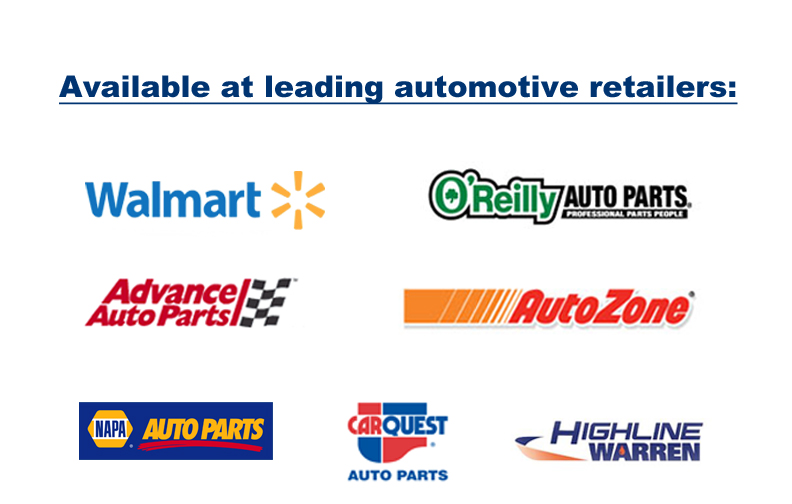

Restore Inc. © 2023